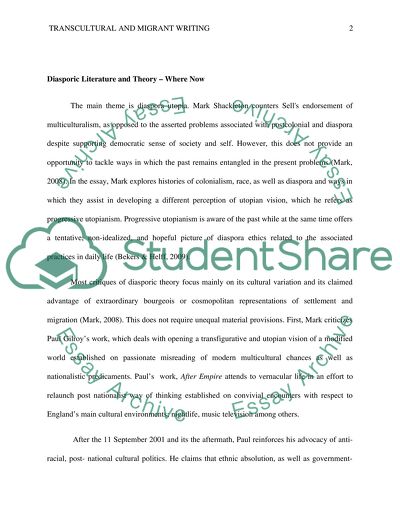Cite this document
(“Transcultural and migrant writing Research Paper”, n.d.)
Transcultural and migrant writing Research Paper. Retrieved from https://studentshare.org/literature/1460554-transcultural-and-migrant-writing
Transcultural and migrant writing Research Paper. Retrieved from https://studentshare.org/literature/1460554-transcultural-and-migrant-writing
(Transcultural and Migrant Writing Research Paper)
Transcultural and Migrant Writing Research Paper. https://studentshare.org/literature/1460554-transcultural-and-migrant-writing.
Transcultural and Migrant Writing Research Paper. https://studentshare.org/literature/1460554-transcultural-and-migrant-writing.
“Transcultural and Migrant Writing Research Paper”, n.d. https://studentshare.org/literature/1460554-transcultural-and-migrant-writing.


